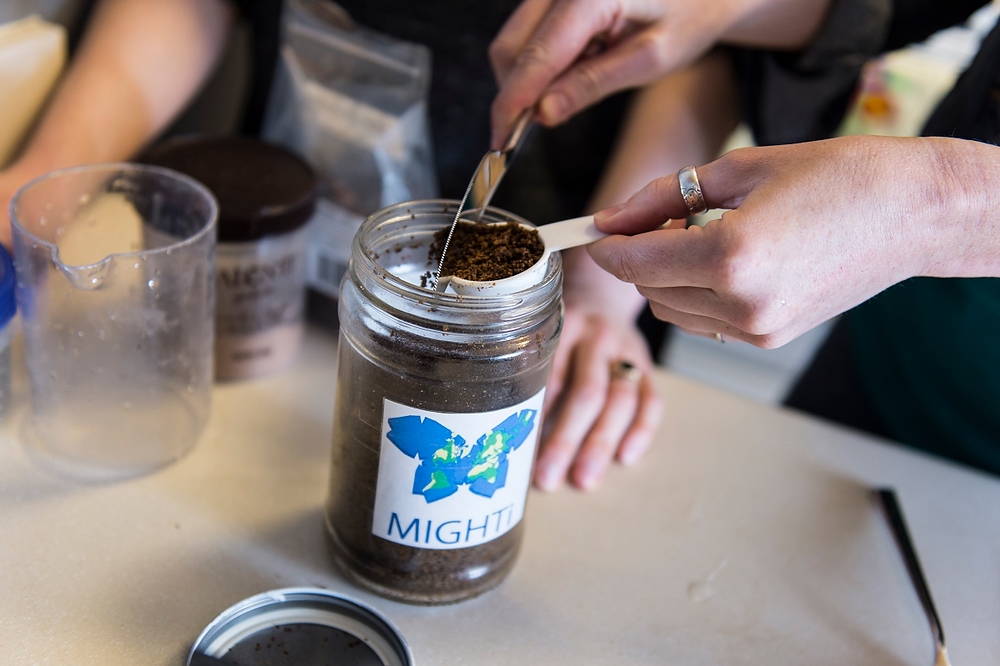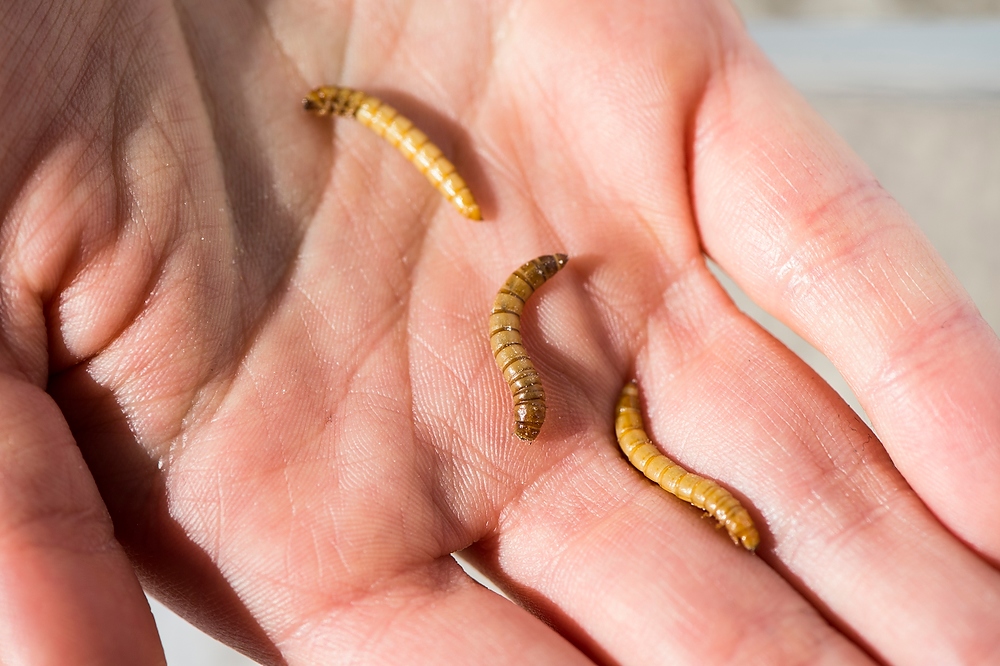
Bugs for our bugs: Could eating insects help combat gut inflammation and boost health?

Squeamish about eating mealworms whole? Try mealworm powder! Photo: Jeff Miller, University of Wisconsin-Madison.
Anyone who works in global health or nutrition knows that global food security is tenuous today, pressured by a growing population, inequitable food distribution, a changing climate, and shifting demand toward more resource-intensive animal products (such as meat and dairy). We recognize that although crop production is at an all-time high, undernutrition remains hugely problematic.
Moreover, health issues related to food insecurity are often exacerbated by gut problems like environmental enteropathy (EE), a subclinical manifestation of intestinal inflammation and malabsorption resulting from chronic exposure to bad bugs (fecal pathogens). EE contributes to impaired gut immune function, poor growth, lack of response to nutritional interventions, and compromised oral vaccine responses. It is prevalent in low-resource developing contexts and is associated with stunting and anemia in children. Interventions to ameliorate enteropathies could improve the health of millions of children.
One potential solution is to increase consumption of nutrient-dense foods that can be sustainably and inexpensively produced with the added value of promoting gut health. Edible insects offer one such under-exploited and readily available source of nutrients across the globe, and our previous research suggests that edible crickets are protein-rich and may also provide benefits to gut health. As such, I have long wondered if feeding good bugs to our gut bugs help alleviate these challenges.
 Enjoy your meal(worms) as powder, tempeh, or other delicious and nutritious preparations. Photo: Jeff Miller, University of Wisconsin-Madison.It may be hard to imagine eating insects if you grew up in the United States as I did, or Canada, or Europe—but insects are a common food across the globe, especially in the tropics. About 2 billion people live in contexts where entomophagy (the practice of eating insects) is embraced. There are more than 2,100 known edible species, which played a critical role in the diet throughout human history.
Enjoy your meal(worms) as powder, tempeh, or other delicious and nutritious preparations. Photo: Jeff Miller, University of Wisconsin-Madison.It may be hard to imagine eating insects if you grew up in the United States as I did, or Canada, or Europe—but insects are a common food across the globe, especially in the tropics. About 2 billion people live in contexts where entomophagy (the practice of eating insects) is embraced. There are more than 2,100 known edible species, which played a critical role in the diet throughout human history.
Today, insects appear in many traditional dishes and are rapidly being incorporated into new products. Farming insects for food and animal feed is a burgeoning industry, motivated in part by their environmental benefits. Insects typically require less land, water, and feed than conventional livestock, while emitting significantly fewer greenhouse gases. Their relatively short lifespans, faster time to maturity and high reproduction rates make them ideal contenders for resource efficient farming. While it is difficult to generalize for all species, insects typically have nutrient profiles akin to meat – they are rich in digestible protein and fat, but low in carbohydrates. They also provide essential minerals, vitamins, and bioactive compounds.
A unique characteristic of insects relative to other animal foods is the presence of dietary fiber, predominantly in the form of chitin derived from the exoskeleton. In the human gut, chitin likely transforms into a more soluble and fermentable forms (e.g., chitosan or chitooligosaccharides) that function as prebiotics. (Prebiotics are those nondigestible food items that promote the growth of beneficial probiotics.) Insect-derived chitosan has been shown to stimulate the growth of probiotic organisms in mice, while consumption of whole insects has been shown to alter the gut microbiota in human fecal samples and in healthy adults. In our study, we fed crickets to healthy adults every day for 14 days and observed two significant health benefits: 1) an increase in the abundance of Bifidobacterium animalis in the gut (a desirable probiotic often added to foods to help boost immunity) and, 2) a decrease in an inflammatory marker in the blood (TNF-alpha) suggesting that chronic inflammation could be reduced by eating crickets.
Although we need more research, I’m optimistic. Recent combined evidence suggests that bugs for our bugs could help improve health; insects appear to be a good source of prebiotic fiber with the potential to promote the growth of beneficial bacteria, reduce inflammation, improve gut barrier function, and reduce the abundance of proinflammatory bacteria in the gut. Therefore, it is plausible, but as of yet unproven, that dietary supplementation with edible insects could help address EE, while providing bioavailable animal-sourced protein and micronutrients to help combat other nutrient deficiencies.


